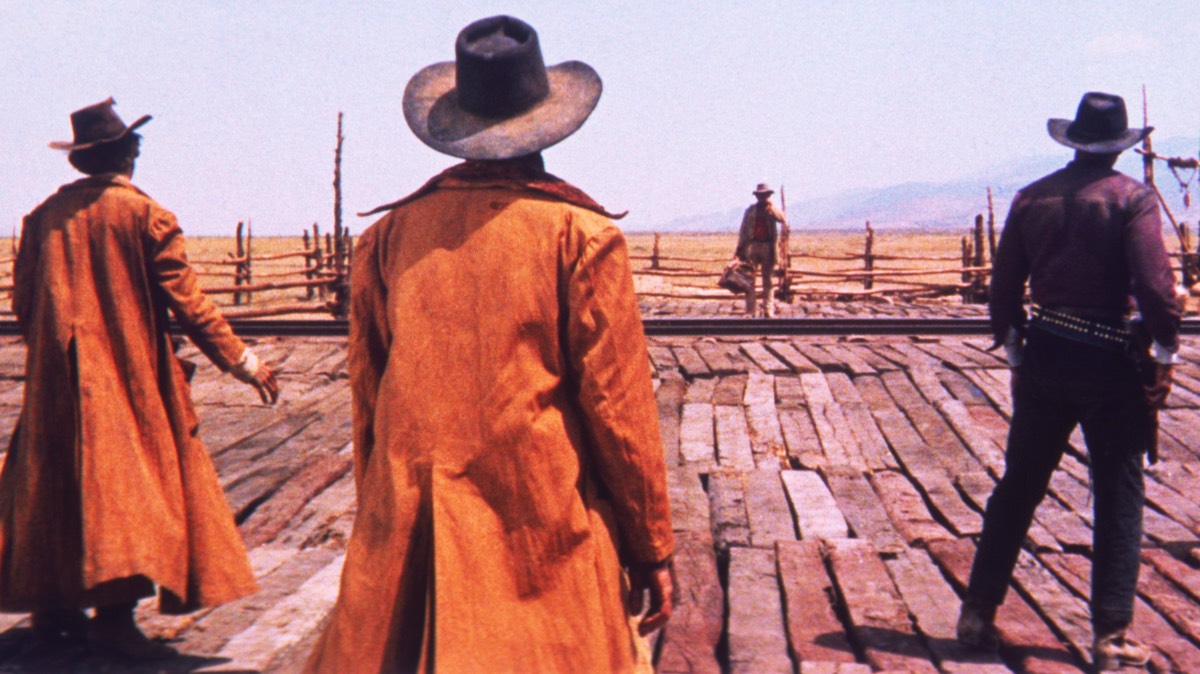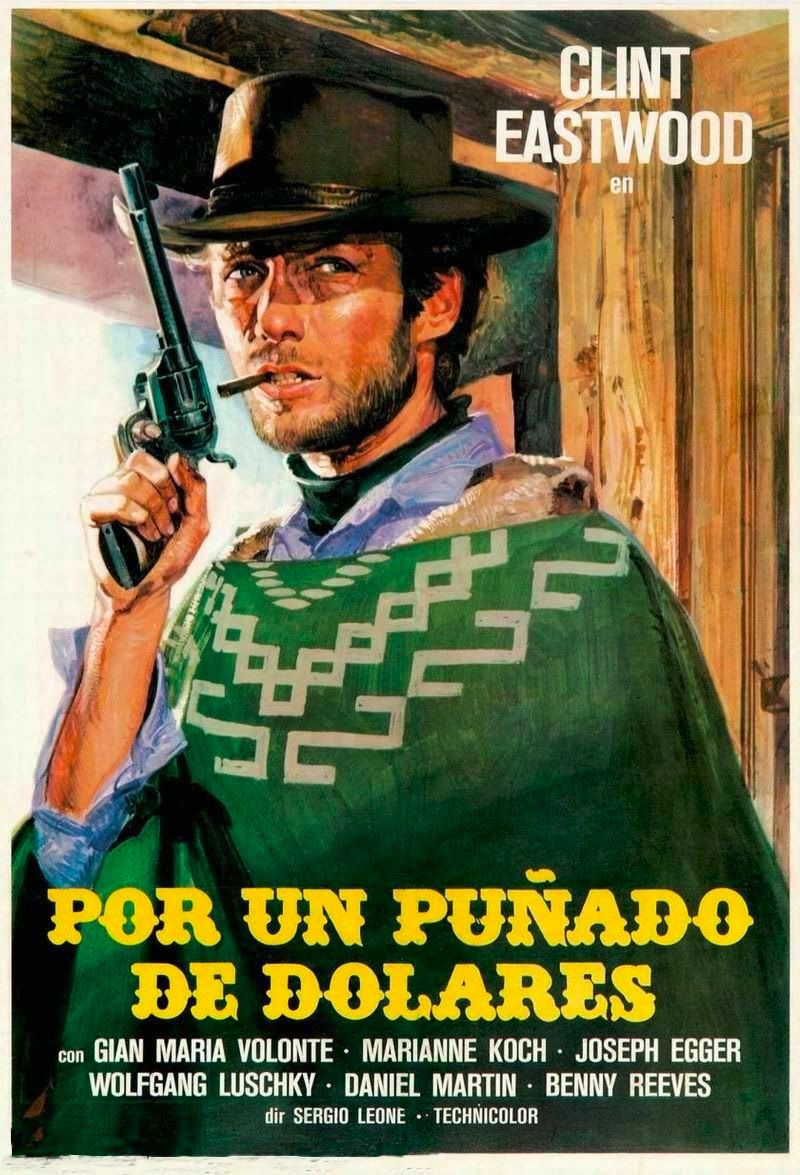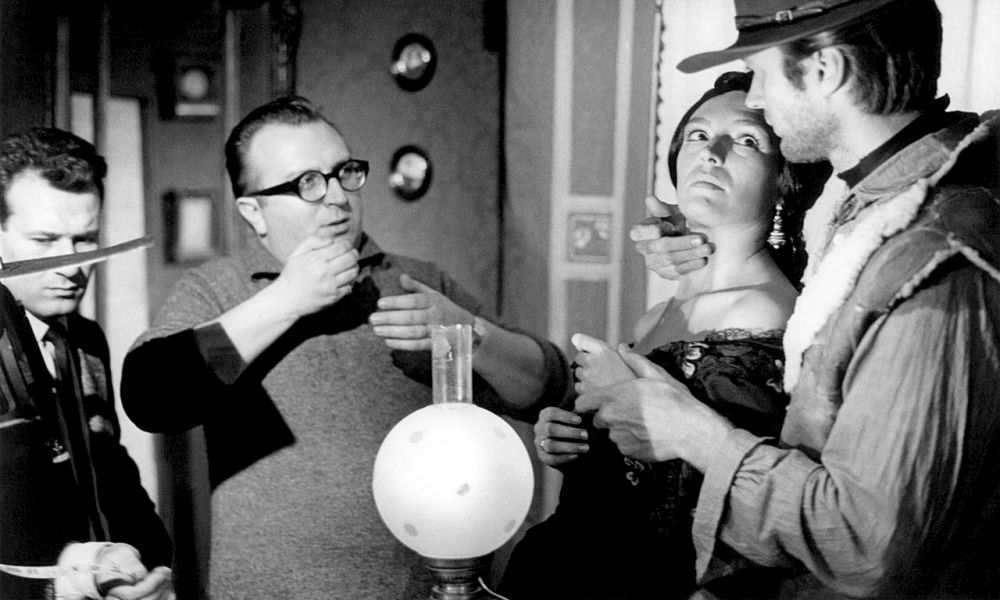"Leone’s greatest impact on the western was stylistic: whereas nihilistic narratives and antiheroes would soon appear in US westerns, Leone’s films audaciously asserted that the western, among the most formulaic and stable of genres, could drastically change its look, feel, and sound." - Corey K. Creekmur (Schirmer Encyclopedia of Film, 2007)
Sergio Leone
Key Production Country: Italy
Key Genres: Spaghetti Western, Western, Ensemble Film, Epic Western, Outlaw (Gunfighter) Film, Revisionist Western
Key Collaborators: Ennio Morricone (Composer), Carlo Simi (Production Designer), Nino Baragli (Editor), Clint Eastwood (Leading Actor), Luciano Vincenzoni (Screenwriter), Tonino Delli Colli (Cinematographer), Lee Van Cleef (Leading Actor), Gian Maria Volonte (Leading Actor), Sergio Donati (Screenwriter), Fulvio Morsella (Producer), Alberto Grimaldi (Producer), Massimo Dallamano (Cinematographer)
Key Genres: Spaghetti Western, Western, Ensemble Film, Epic Western, Outlaw (Gunfighter) Film, Revisionist Western
Key Collaborators: Ennio Morricone (Composer), Carlo Simi (Production Designer), Nino Baragli (Editor), Clint Eastwood (Leading Actor), Luciano Vincenzoni (Screenwriter), Tonino Delli Colli (Cinematographer), Lee Van Cleef (Leading Actor), Gian Maria Volonte (Leading Actor), Sergio Donati (Screenwriter), Fulvio Morsella (Producer), Alberto Grimaldi (Producer), Massimo Dallamano (Cinematographer)
"A legend of Italian cinema, and filmmaking as a whole, Sergio Leone made his name taking one of the most iconic of U.S. film genres, the Western, and refashioning it for a new era." - Joshua Klein (501 Movie Directors, 2007)
"A master of widescreen Techniscope composition, he brought depth and movement to his landscapes with elegant crane shots and brazen pans; he also evinced a startling propensity for juxtaposing wide shots with ultra-tight close-ups. Ennio Morricone's eclectic and innovative scores were also integral to the films' impact - flippant and ironic, but with an undertow of nostalgia and regret. Much derided by contemporary US critics for their supposed "violence" (Pauline Kael branded them "fascist"), the Leone Westerns show little love for the land (which is mostly desert scrub) and have no faith in human decency." - Tom Charity (The Rough Guide to Film, 2007)

Once Upon a Time in the West (1968)
"Not since Franz Kafka's America has a European artist turned himself with such intensity to the meaning of American culture and mythology. Sergio Leone's career is remarkable in its unrelenting attention to both America and American genre film. In France, Truffaut, Godard, and Chabrol have used American film as a touchstone for their own vision, but Leone, an Italian, a Roman who began to learn English only after five films about the United States, devoted most of his creative life to this examination." - Stuart M. Kaminsky (The St. James Film Directors Encyclopedia, 1998)
"Working against traditional concepts of heroism, his darkly troubled protagonists are driven by greed, revenge, sheer malice or a rough sense of justice, while his epic, flashback-heavy tales are often dominated by set-piece tableaux of deadly conflict." - Geoff Andrew (The Director's Vision, 1999)
"The films themselves are bloodbaths, full of sound, fury and sadism. Bullets made round, black-edged holes, through which blood was seen to gush. People were hit by them in painful places. Characters were beaten, whipped, raped: the films were orgies of destruction of life and property, often with slow, deliberate showdowns, full of portentous close-ups of grime-encrusted faces." - David Quinlan (Quinlan's Film Directors, 1999)
"A satirist of the American West, Leone's Dollars trilogy with Clint Eastwood is funny, violent, and reminiscent of the mythmaking dime novels of yesteryear." - William R. Meyer (The Film Buff's Catalog, 1978)
"I can't see America any other way than with a European's eyes. It fascinates me and terrifies me at the same time." - Sergio Leone
Selected Filmography
{{row.titlelong}}
Sergio Leone / Fan Club
Quentin Tarantino, Joe Dante, Dan Daor, Adrian Martin, Tim Lucas, Milan Pavlovic, Keith H. Brown, Martin Scorsese, Michał Oleszczyk, Alex Cox, Asif Kapadia, Thomas Clay.
Quentin Tarantino, Joe Dante, Dan Daor, Adrian Martin, Tim Lucas, Milan Pavlovic, Keith H. Brown, Martin Scorsese, Michał Oleszczyk, Alex Cox, Asif Kapadia, Thomas Clay.
"Fan Club"
These film critics/filmmakers have, on multiple occasions, selected this director’s work within film ballots/lists that they have submitted.
These film critics/filmmakers have, on multiple occasions, selected this director’s work within film ballots/lists that they have submitted.


